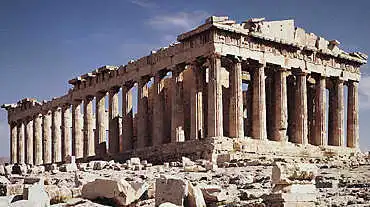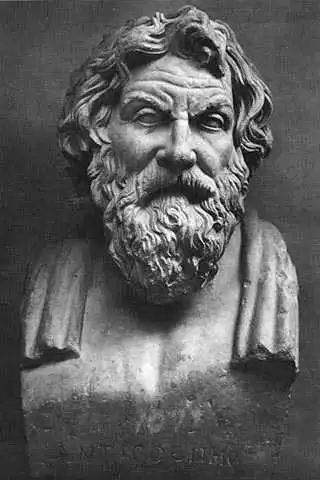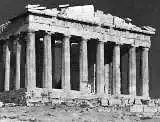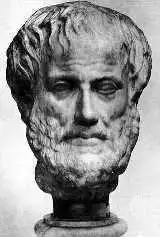Cosmos of the Ancients The Greek Philosophers on Myth and CosmologyAntisthenes ntisthenes (circa 446-366 BC), called the Cynic, student of Gorgias and then Socrates, is often in the literature mentioned as one to interpret the gods as personifications of natural forces. In the remainder of his works, though, there is little to support it. He wrote about myths, and judging from the long list of his books in Diogenes Laertius, he did so repeatedly — but a majority of the titles obviously deal with the ethics of living, of personal ideals for man.
ntisthenes (circa 446-366 BC), called the Cynic, student of Gorgias and then Socrates, is often in the literature mentioned as one to interpret the gods as personifications of natural forces. In the remainder of his works, though, there is little to support it. He wrote about myths, and judging from the long list of his books in Diogenes Laertius, he did so repeatedly — but a majority of the titles obviously deal with the ethics of living, of personal ideals for man.
This includes the legendary figure he seems to have pondered the most, Heracles, whose nobility, virtue and heroic qualities were like honey to the mind of Antisthenes. Personal virtue and stamina is also the subject in practically all of the quotes from him, which Diogenes Laertius includes in his text, spanning several pages.

Antisthenes also, in his book entitled The Natural Philosopher, says that while there are many gods of popular belief, there is one god in nature, so depriving divinity of all meaning or substance. This view would, of course, give Antisthenes ambiguous feelings about the myths of Homer and Hesiod, but contains no indication of any particularly allegorical interpretation of them. The passage in Xenophon's Symposium (3.5), regarding 'underlying meanings' (hyponoiai) in Homer's texts, usually referred to, actually shows Socrates holding such views, whereas Antisthenes hardly seems to be familiar with the term. His interest in the myths remains ethical.
LiteratureDiogenes Laertius, Lives of Eminent Philosophers, translated by R. D. Hicks, volume II, Loeb, London 1950.Cicero, De natura deorum, 1.13.32, translated by H. Rackham, Loeb, London 1979. Rankin, H.D., Antisthenes Sokratikos, Amsterdam 1986.
© Stefan Stenudd 2000

The Greek Philosophers
AristotleIntroductionAristotle's LifeTimelineAristotle's PoeticsAristotle's CosmologyAbout CookiesMy Other WebsitesCREATION MYTHSMyths in general and myths of creation in particular.
TAOISMThe wisdom of Taoism and the Tao Te Ching, its ancient source.
LIFE ENERGYAn encyclopedia of life energy concepts around the world.
QI ENERGY EXERCISESQi (also spelled chi or ki) explained, with exercises to increase it.
I CHINGThe ancient Chinese system of divination and free online reading.
TAROTTarot card meanings in divination and a free online spread.
ASTROLOGYThe complete horoscope chart and how to read it.
MY AMAZON PAGE
MY YOUTUBE AIKIDO
MY YOUTUBE ART
MY FACEBOOK
MY INSTAGRAM
MY TWITTER
STENUDD PÅ SVENSKA
|
 Cosmos of the Ancients
Cosmos of the Ancients